Lecture 14: How to Operate
第十四怎么去运营公司
第14讲课程视频
![图片[1]_Lecture 14: How to Operate 第十四怎么去运营公司_繁木网](http://fanmu.com/wp-content/uploads/2021/12/Y-Combinator.jpg)
讨论地址:http://www.huomen.com/topic-show-id-103.html
I’m going to talk about how to operate. I have watched some of the prior classes and I am going to assume you have hired a bunch of relentlessly resourceful people, you have built a product that at least some people love, hopefully raised some capital, and now you are trying to build a company. You have been forging a product and now you are forging a company. And I would actually argue, forging a company is a lot harder than forging a product. Basic reason is people are irrational. We all know this. Either your parents, your significant other, your brother or sister, your teacher, somebody in your life is irrational. Building a company is basically like taking all the irrational people you know putting them in one building, and then living with them twelve hours a day at least. It’s very challenging. Now there are some techniques for coping with that some people get good at it, some people don’t. But that’s really what operating is all about.
我要谈谈如何操作。我看过之前的一些课程,我会假设你已经雇佣了一群不屈不挠的足智多谋的人,你建立了一个产品,至少有人喜欢,希望能筹集到一些资金,现在你正试图建立一个公司。你一直在打造一个产品,现在你在打造一个公司。实际上,我认为,打造一家公司比打造一个产品要困难得多。根本原因是人们不理性。我们都知道这一点。你的父母,你的另一半,你的兄弟姐妹,你的老师,你生活中的某个人都是不理智的。建立一个公司基本上就是把你认识的所有不理智的人都带到一栋楼里,然后每天至少和他们一起生活12个小时。这很有挑战性。现在有一些技巧可以应付,有些人擅长,有些人不擅长,但这就是手术的真正意义所在。
So basically what you are doing when building a company is building an engine. At first you have a drawing on a white board and you are architecting it, and it looks especially clean, beautiful, and pretty. But when you actually start translating it to practice it actually starts looking more like this and you’re holding it together with duct tape. It takes a lot of effort from people to hold it together, that’s why people work 80-100 hours a week. It’s that heroic effort to keep this thing together because you don’t actually, yet, have polished metal in place. Eventually you want to construct a very high performance machine. A machine that almost nobody really has to worry about every hour, every minute. And as we used to joke about at eBay, that if the Martians took over eBay it would take 6 months for the world to notice. That’s eventually what you want to get to.
所以基本上你在建立一个公司的时候所做的就是建立一个引擎。一开始你在白板上画了一幅画,你正在设计它,它看起来特别干净,漂亮,漂亮。但当你真正开始把它翻译成练习的时候,它看起来更像这样,你用胶带把它粘在一起。人们需要付出很多努力才能把它团结起来,这就是为什么人们每周工作80-100个小时。这是一个英雄的努力,保持这件事在一起,因为你实际上,还没有抛光金属到位。最终你会想要构造一个高性能的机器。几乎没人真正需要担心的机器。就像我们以前在eBay上开玩笑说的那样,如果火星人接管了eBay,全世界需要6个月的时间才能注意到。这就是你最终想要达到的目标。
As Warren Buffett says, build a company that idiots could run because eventually they will. So this is what you want. Basically a performance machine that idiots can run. Now as a leader, what is your real job, what’s your role? Strictly speaking there is only one book ever written that actually explains how to do this. It’s rather old, written in 1982 by Andy Grove, it’s quite famous, and successful. And his definition of what your job is, is to maximize the output of the organization. Your organization that you are responsible for, so the CEO’s (responsible for) everything and VP would be a part of the organization, and the organizations around you. So if you are a VPE, you are actually responsible for the performance of the product team and the marketing team because you have influence there. So this is how you measure people, and you want to focus on the output and not the input. The old adage about measuring motion and confusing progress. You are measuring only progress. And this is going to sound like a fancy and glamorous thing to do. Maybe people get excited about managing a whole large organization and being “responsible” for the output. But in practice, what you are going to hopefully learn today is that it’s more about things like ordering smoothies, teaching your receptionist how to answer your phone properly, and serving as a $10 an hour TaskRabbit for your employees. So let’s talk about that.
正如沃伦巴菲特所说,建立一个白痴可以经营的公司,因为最终他们会。所以这就是你想要的。基本上是一个傻瓜可以运行的性能机器。现在作为一个领导者,你真正的工作是什么,你的角色是什么?严格地说,只有一本书真正解释了如何做到这一点。它相当古老,是安迪·格罗夫在1982年写的,非常有名,而且很成功。他对你的工作的定义是,最大化组织的产出。你负责的组织,所以首席执行官(负责)的一切和副总裁将是组织的一部分,以及你周围的组织。因此,如果你是一个副总裁,你实际上要对产品团队和营销团队的表现负责,因为你在那里有影响力。所以这就是你衡量人的方式,你要关注的是产出而不是投入。关于测量运动和混淆进展的古老格言。你只是在衡量进展。这听起来像是一件奇特而迷人的事情。也许人们会对管理一个大组织和对产出“负责”感到兴奋。但实际上,你今天希望学到的是,更多的是点冰沙,教你的接待员如何正确接听你的电话,以及为你的员工提供每小时10美元的工作兔。我们来谈谈。
So at first, when you start a company everything is going to feel like a mess. And it really should. If you have too much process, too much predictability, you are probably not innovating fast enough and creatively enough. So it should feel like everyday there is a new problem and what you are doing is fundamentally triaging. So some things will look like a problem, and they are actually colds, they are just going to go away. So somebody is annoyed about this or that, that is a cold, you shouldn’t stress about it and you certainly should not allocate all your time to it. And some things are going to present themselves as colds, but just like in the emergency room if they are not diagnosed properly they can actually become fatal. What I am going to try to do is give you frameworks for thinking about when things are colds and when things are potentially fatal.
所以一开始,当你创办一家公司的时候,一切都会变得一团糟。它真的应该。如果你有太多的过程,太多的可预测性,你可能没有足够的创新速度和创造性。所以你应该觉得每天都有一个新的问题,你所做的是从根本上分诊。所以有些事情看起来像是个问题,实际上是感冒,它们就要消失了。所以有人对这个或那个感到恼火,那就是感冒,你不应该为此感到压力,你当然不应该把所有的时间都分配给它。有些东西会表现为感冒,但就像在急诊室一样,如果没有正确的诊断,它们实际上会变得致命。我要做的是给你们一些框架,让你们思考什么时候感冒,什么时候可能致命。
So one of the most important things I learned at Square is the concept of editing. And this is the best metaphor I have ever seen in 14 years of running stuff, of how to think about your job. It’s a natural metaphor, so it’s easy to take with you everyday and it’s easy to transmit to each of your employees so they can figure out if they are editing or writing. It’s a natural construct, you generally know when somebody asks you to do something, am I writing or am I editing? So an editor is the best metaphor for your job. And we are going to talk about the specific things you are doing in editing.
所以我在Square学到的最重要的东西之一就是编辑的概念。这是我14年来所见过的最好的比喻,关于如何思考你的工作。这是一个自然的比喻,所以它很容易带着你每天和它很容易传达给你的每一个员工,让他们知道他们是否编辑或写作。这是一个自然的结构,你通常知道当有人要求你做某事时,我是在写作还是在编辑?所以编辑是你工作的最好比喻。我们将讨论你在编辑方面所做的具体工作。
The first thing an editor does and you have all probably had this experience in school, is you submit a paper, to a TA, a draft to your friend, and the first thing that editor does is they take out a red pen, or nowadays you go online, and they start striking things. Basically eliminating things, the biggest task of an editor is to simplify, simplify, simplify and that usually means omitting things. So that’s your job too, is to clarify and simplify for everybody on your team. The more you simplify, the better people will perform. People can not understand and keep track of a long complicated set of initiatives. So you have to distill it down to one, two, or three things and use a framework they can repeat, they can repeat without thinking about, they can repeat to their friends, they can repeat at night.
编辑做的第一件事,你们可能在学校都有过这样的经历,就是你提交一篇论文,给助教,给你的朋友一份草稿,编辑做的第一件事就是他们拿出一支红笔,或者现在你上网,他们开始引人注目。从根本上消除东西,编辑最大的任务就是简化,简化,简化,这通常意味着省略东西。所以这也是你的工作,就是为团队中的每个人澄清和简化。你越简化,人们的表现就越好。人们无法理解和跟踪一系列复杂的计划。所以你必须把它提炼成一件、两件或三件事,使用一个他们可以重复的框架,他们可以不假思索地重复,他们可以向朋友重复,他们可以在晚上重复。
欢迎到火门网讨论:huomen.com
Don’t accept the excuse of complexity. A lot of people will tell you, this is too challenging, this is too complicated, yeah well I know other people simplify but that’s not for me, this is a complicated business. They’re wrong. You can change the world in 140 characters. You can build the most important companies in history with a very simple to describe concept. You can market products in less than 50 characters. There is no reason why you can’t build your company the same way. So force yourself to simply every initiative, every product, every marketing, everything you do. Basically take out that red and start eliminating stuff.
不要接受复杂的借口。很多人会告诉你,这太有挑战性了,太复杂了,是的,我知道其他人很简单,但这不适合我,这是一个复杂的生意。他们错了。你可以用140个字符改变世界。你可以用一个非常简单的概念来建立历史上最重要的公司。你可以用少于50个字符来推销产品。你没有理由不以同样的方式建立你的公司。所以,强迫自己去做每一件事,每一件产品,每一次营销,每一件你做的事。基本上去掉红色,开始消除东西。
Second thing editors do, is they ask you clarifying questions. When you present a paper to someone, what do they usually do? They find some ambiguity somewhere and ask, do you really mean this? Did you really mean that? Give me an example of this? That’s what your job is. So you are in a meeting, people are going to look to you. And the real thing you do, is you ask a lot of questions. And they can be simple basic questions like should we try this seven days a week? Or six days? They can be fundamental questions like, where’s our competitive advantage here? We try to do this as investors too. Some investors will ask you a billion questions about a billion things and they will have you do diligence forever. We try to narrow down to, what are the one two three four things that matter most to this company? And only focus on those things. So it allows us to be more decisive and we can make decisions rapidly. It allows us not to distract you from your day job which is actually building a company. And yet still I think we get to the highest fidelity question because we don’t have all these extra extraneous details and data. Now it’s hard, it’s something you have to practice. But when you get good at it, every step you eliminate, Andy Grove estimated you can improve performance by 30-50%.
编辑们要做的第二件事,就是问你一些明确的问题。当你向某人提交论文时,他们通常做什么?他们在某处发现了一些模棱两可的地方,然后问,你真的是这个意思吗?你真的是那个意思吗?给我举个例子?这就是你的工作。所以你在开会,大家都会看你的。你真正要做的,就是问很多问题。它们可以是一些简单的基本问题,比如我们是否应该一周七天都这样做?还是六天?它们可能是一些基本问题,比如,我们的竞争优势在哪里?作为投资者,我们也尝试这样做。有些投资者会问你10亿个关于10亿件事情的问题,他们会让你永远勤奋。我们试着把范围缩小到,对公司来说最重要的一二三四件事是什么?只关注那些事情。因此,它让我们更加果断,我们可以迅速做出决定。它让我们不会分散你的注意力,从你的日常工作,实际上是建立一个公司。然而,我仍然认为我们得到了最高保真度的问题,因为我们没有所有这些额外的外部细节和数据。现在很难了,这是你必须练习的。但是当你擅长的时候,每一步你消除,安迪格罗夫估计你可以提高30-50%的表现。
Now the next thing you do is you allocate resources. So the editor construct, this is what editors do all the time. They take editors from the Mideast, covering the Mideast and they move them to Silicon Valley, because Silicon Valley is more interesting. Or they move them to the sports section because they want to compete on the basis of sports journals and other publications. So that can be top down, where I take a whole bunch of resources and people and say, we are now going over here. We are going to compete on this basis. Then next month, next quarter, next year well that Middle East coverage is getting boring, we don’t want to do that anymore. Let’s go chase after something else. Or it can be bottom up, just like journalists mostly come up with their own stories.
接下来你要做的就是分配资源。所以编辑器构造,这是编辑器一直在做的。他们从中东聘请编辑,报道中东地区,然后把他们搬到硅谷,因为硅谷更有趣。或者他们把他们转到体育组,因为他们想在体育杂志和其他出版物的基础上竞争。所以这可以是自上而下的,我拿了一大堆资源和人员说,我们现在要到这里来。我们要在这个基础上竞争。下个月,下个季度,明年中东的报道越来越无聊了,我们不想再这样了。我们去找点别的吧。或者它可以是自下而上的,就像记者们大多会自己编故事一样。
欢迎到火门网讨论:huomen.com
The people who work with you, generally, should be coming up with their own initiatives. So a reporter, generally, who covers Google will come up with the interesting stories that they are hearing in ether and propose one or two to their editor for approval. But it’s not the editor saying, go cover Google and this is the angle I want. Once in a while they do that, but its not the meat and potatoes of what a journalist does every day. Your goal over time is to use less red ink every day. So one way of measuring how well you are doing at communicating or talking to your colleagues about what’s important and what’s not, about why some things are important and why some things are not. It’s how much red ink you are pulling out in a day, it’s okay if you are having a bad day and the red ink is all over the place. But it’s not okay if the red ink next month is more than it was last month, and next quarter more than this, so measure yourself by how much red ink you’re creating.
一般来说,与你一起工作的人应该有自己的想法。所以一个报道谷歌的记者,通常会提出他们在以太网上听到的有趣的故事,并向他们的编辑推荐一两个以供批准。但这并不是编辑说,去谷歌报道,这是我想要的角度。他们偶尔会这样做,但这不是记者每天所做的事。随着时间的推移,你的目标是每天少用红墨水。因此,一种衡量你在与同事沟通或谈论什么重要什么不重要,为什么有些事情重要,为什么有些事情不重要的方法。这是你一天抽了多少红墨水,如果你今天不好,红墨水到处都是,这没关系。但如果下个月的赤字比上个月多,下个季度比这个多,那就不好了,所以用你创造的赤字来衡量自己吧。
The other thing that is very important that actually isn’t as intuitive to a lot of people, is the job of an editor is to ensure consistent voice. So if any of you read The Economist, you can tell that there is one consistent voice. You can pick up any article, any post in The Economist and it feels like it was written by the same person. Ideally, your company should feel, on your website, on PR releases, on your packaging if it’s a physical product, anywhere on your recruiting pages it should feel like it was written by one person. That’s extremely difficult to do. And at first you are going to be tempted to do that yourself, which is okay for a founder to do that him or herself initially. Over time you do not want to be doing all of the consistent voice editing by yourself. You want to train people so they can recognize differences in voice.
另一件对很多人来说并不那么直观的非常重要的事情是,编辑的工作是确保一致的声音。所以,如果你们中有人读过《经济学人》,你会发现有一个一致的声音。你可以在《经济学人》上找到任何一篇文章,任何一篇帖子,感觉都是同一个人写的。理想情况下,你的公司应该感觉到,在你的网站上,在公关发布上,在你的包装上,如果是实物产品,在招聘页面上的任何地方,都应该感觉是一个人写的。很难做到。一开始你会被诱惑自己去做这件事,这对一个创始人来说,一开始自己去做是可以的。随着时间的推移,你不想做所有的一致的语音编辑自己。你想训练人们,让他们能够识别声音的差异。
See this website page, it looks very different than this recruiting page. You start asking questions, why is that? Is the reporting messed up? Is one of the leaders over here not really understanding the voice of the company? You have to fix that over time, but you want to start with the objective that everything should feel the same. It’s quite difficult to practice, almost every company has one piece of the organization that isn’t on the same voice. At Apple, which is notorious, even under Steve’s regime, which is notorious for getting this right, if you asked someone who worked at Apple, asked them about the internal tools about recruiting, do they really feel like Apple products? All of them will tell you no. So you are never 100%. But you definitely want to get as close to that as you can.
看到这个网站页面,它看起来和这个招聘页面很不一样。你开始问问题,为什么?报道搞砸了吗?这里的一位领导真的不理解公司的声音吗?随着时间的推移,你必须解决这个问题,但你要从一个目标开始,那就是一切都应该感觉一样。这是相当困难的做法,几乎每个公司都有一个组织的一部分,是不是在同一个声音。在臭名昭著的苹果公司,即使是在史蒂夫的政权下,也臭名昭著地把这件事做好,如果你问在苹果公司工作的人,问他们招聘的内部工具,他们真的感觉像苹果的产品吗?所有的人都会拒绝你,所以你永远都不是100%。但你一定要尽可能接近这一点。
Next complicated topic is delegating. So just like the other metaphor on editing is writers do most of the work in the world, editors are not writing most of the content in any publication. So that is true of your company, you shouldn’t be doing most of the work. And the way you get out of most of the work, is you delegate. Now the problem with delegating is that you are actually responsible for everything. The CEO, founder, there is no excuse. There is no, there is that department over there, this person over there screwed up. You are always responsible for every single thing, especially when things go wrong. So how do you both delegate but not abdicate? It’s a pretty tricky challenge, both are sins. You over delegate and you abdicate, or you micromanage, those are both sins. So I’m going to give you a couple techniques for solving this.
下一个复杂的话题是授权。因此,正如编辑的另一个比喻是,世界上大部分的工作都是由作家来完成的,编辑并不是在任何出版物上写大部分的内容。所以你的公司也是这样,你不应该做大部分的工作。而你从大部分工作中解脱出来的方式,就是授权。现在授权的问题是你实际上要对每件事负责。CEO,创始人,没有借口。没有,那边有那个部门,那个人搞砸了。你总是对每一件事负责,特别是当事情出错的时候。那么,你们如何既授权又不退位呢?这是一个相当棘手的挑战,两者都是罪恶。你过度授权,你退位,或你微观管理,这都是罪过。所以我要给你们一些技巧来解决这个问题。
First, and this actually came from High Output Management and Andy Grove, is called task relevant maturity. It’s a fancy phrase for, has this person ever done this before? It’s really simple, how mature is this person in doing something? And the more they have done the exact same task before, the more rope you are going to give them. And the more they are trying something new, the more you are going to instruct them and constantly monitor. This is a basic concept but it’s worth keeping in the back of your brain. The interesting implication, and this is pretty radical, is that any executive, any CEO, should not have one management style. Your management style should be dictated by your employee. So with one particular person, you may be very much a micromanager because they are quite low on this scale. And with another person,, you may be delegating a lot because they are quite mature on this scale.
首先,这实际上来自高产出管理和Andy Grove,被称为任务相关成熟度。这是一个花哨的短语,这个人以前做过吗?其实很简单,这个人做事情有多成熟?他们以前做的同样的任务越多,你就给他们更多的绳子。他们越是尝试新的东西,你就越要指导他们,不断地监督他们。这是一个基本的概念,但它值得留在你的大脑后面。有趣的是,任何一位高管,任何一位首席执行官,都不应该有一种管理风格,这一点非常激进。你的管理风格应该由你的员工决定。所以对于一个特定的人,你可能是一个非常微观的管理者,因为他们在这个尺度上是相当低的。而对于另一个人,你可能会授权很多,因为他们在这个规模上相当成熟。
So it’s actually a good thing if you do reference checks on somebody and half the people you call say they are a micromanager and the other half say they actually give me a lot of responsibility. That’s a feature not a bug. I didn’t understand that at first at all. I used to be befuddled when people would do reference checks on me and come back with this complicated mosaic. Then I finally figured out that maybe I was doing my job correctly. So then I taught others that this is the way to do it.
所以,如果你对某人做推荐信调查,你打电话给的人中有一半说他们是一个微观管理者,另一半说他们实际上给了我很多责任,这其实是一件好事。这是一个功能而不是一个bug。一开始我根本不明白。当人们检查我的推荐信,然后拿着这个复杂的马赛克回来时,我常常感到困惑。后来我终于意识到也许我做得对。所以后来我教其他人这是一种方法。
A more nuanced answer that I came up with, is how to make decisions. Delegating vs doing it yourself. You don’t want to do it yourself too often. So I basically borrowed from Peter, this is my first two by two matrix ever in my life, but he taught me something at least. You basically sort your own level of conviction about a decision on a grate, extremely high or extremely low. There’s times when you know something is a mistake and there’s times when you wouldn’t really do it that way but you have no idea whether it’s the right or wrong answer. And then there is a consequence dimension. There are things that if you make the wrong decision are very catastrophic to your company and you will fail. There are things that are pretty low impact. At the end of the day they aren’t really going to make a big difference, at least initially.
我想出了一个更微妙的答案,那就是如何做决定。授权与自己动手。你不想经常自己动手。所以我基本上是从彼得那里借来的,这是我生命中第一个二乘二矩阵,但他至少教会了我一些东西。你基本上是根据自己对某个决定的信念程度来排序的,无论是非常高还是非常低。有时你知道某件事是错误的,有时你不会真的那样做,但你不知道这是正确的还是错误的答案。还有一个结果维度。有些事情,如果你做了错误的决定,对你的公司是非常灾难性的,你会失败。有些事情影响很小。归根结底,他们不会真的有什么大的改变,至少一开始是这样。
So what I basically believe is where there is low consequence and you have very low confidence in your own opinion, you should absolutely delegate. And delegate completely, let people make mistakes and learn. On the other side, obviously where the consequences are dramatic and you have extremely high conviction that you are right, you actually can’t let your junior colleague make a mistake. You’re ultimately responsible for that mistake and it’s really important. You just can’t allow that to happen. Now the best way to do that is to actually explain your thinking why. It’s easy to shortcut when you get busy explaining ways in the world but it’s very important to try.
所以我基本上认为,如果后果很小,你对自己的观点信心很低,你应该绝对授权。完全授权,让人们犯错误并学习。另一方面,很明显,如果后果是戏剧性的,你有极高的信心,你是对的,你实际上不能让你的下级同事犯错误。你最终要为这个错误负责,这真的很重要。你不能让这种事发生。现在最好的办法就是解释你的想法。当你忙于解释世界上的事情时,走捷径是很容易的,但尝试是非常重要的。
When I was at LinkedIn, I had a colleague that was quite, quite talented but occasionally would get annoyed if I did not agree with his opinion on something. So I would spend a lot of time trying to persuade him why I was making a decision a certain way. And his wild card, his card he would call out if I didn’t quite persuade him was, okay you’re the boss. And that to me was like I was burning a lot of social capital. Every time he said that I knew I was creating a really thin line and ultimately that was going to backfire if I did that too often. You want to track the times that you are doing that.
当我在LinkedIn的时候,我有一个非常非常有才华的同事,但是如果我不同意他的意见,他偶尔会生气。所以我会花很多时间去说服他为什么我要用某种方式做决定。他的外卡,如果我不能说服他,他会叫出来的外卡,没关系,你是老板。这对我来说就像是在燃烧大量的社会资本。每次他说我知道我在制造一条很细的线,如果我太经常这样做,最终会适得其反。你想追踪你做那件事的时间。
An example of this is at Square, one of my favorite people in the world and my second hire, first marketing hire, had this program he wanted to run called Inner Square which allowed Square merchants to give out, imagine a food truck outside put out ten Squares on the counter and people could just grab them. And Kyle had this great idea that this would be an awesome marketing program. Squares would spread Squares to other people and to some extent it was on brand. So it didn’t have catastrophic consequences. Each of these ten Squares didn’t cost that much money, so financially we could afford to do it. But at that time, my ten years of experience said it was not going to work on a meaningful enough scale for our metrics and I preferred not to do it. Kyle was so excited about this that I decided to just let him do it. He learned that when you measure this thing, it’s not massive. It doesn’t create massive value for the company. It did require a fair amount of operational complexity to ship all these Squares to people and figure out how to get them, etc, etc. But it allowed him to be excited about his job and to learn how to filter future ideas. So it was totally worth letting him make the “Mistake.”
这方面的一个例子是在Square,我在世界上最喜欢的人之一,我的第二个雇员,第一个营销雇员,有一个他想运行的程序叫做Inner Square,它允许Square的商人分发,想象一辆食品卡车在外面的柜台上放了十个Square,人们就可以抓住它们。凯尔有个好主意,这将是一个很棒的营销计划。广场会传播广场给其他人,在某种程度上,它是品牌。所以没有造成灾难性的后果。这十个方格每一个都不花那么多钱,所以在经济上我们可以负担得起。但在那个时候,我十年的经验告诉我,对于我们的衡量标准来说,这样做是不够有意义的,我宁愿不这样做。凯尔对此非常兴奋,我决定让他去做。他知道当你测量这个东西的时候,它不是巨大的。它不会为公司创造巨大的价值。它确实需要相当多的操作复杂性来将这些方块运送给人们,并找出如何得到它们等等,但它让他对自己的工作感到兴奋,并学会如何过滤未来的想法。所以让他犯“错误”是完全值得的
The next and most important thing you do is edit the team. So these are the people you work with. Nobody is going to have a perfect team and you certainly aren’t going to start that way. So what I am going to try to do is maximize the probability of success in editing the team. So I like this idea of barrels and ammunition. Most companies, when they get into hiring mode, as Sam pointed out you should defer that a bit, but when you do just hire a lot of people, you expect that when you add more people your horsepower or your velocity of shipping things is going to increase. Turns out it doesn’t work that way. When you hire more engineers you don’t get that much more done. You actually sometimes get less done. You hire more designers, you definitely don’t get more done, you get less done in a day.
接下来也是最重要的一件事就是编辑团队。这些就是你的同事。没有人会有一支完美的球队,你肯定不会这样开始。所以我要做的是最大限度地提高编辑团队的成功概率。所以我喜欢这种桶和弹药的想法。大多数公司,当他们进入招聘模式时,正如山姆所指出的,你应该推迟一点,但是当你只是雇佣了很多人,你会期望当你增加更多的人时,你的马力或你的运输速度会增加。结果不是这样的。当你雇佣更多的工程师时,你不会完成更多的工作。实际上有时候你做得很少。你雇了更多的设计师,你肯定做不到更多,你一天完成的更少。
The reason why is because most great people actually are ammunition. But what you need in your company are barrels. And you can only shoot through the unique barrels that you have. That’s how the velocity of your company improves is having barrels. Then you stock them with ammunition, then you can do a lot. You go from one barrel company, which is mostly how you start, to a two barrel company and you get twice as many things done in a day, per week, per quarter. If you go to three barrels, great. If you go to four barrels, awesome. Barrels are very difficult to find. But when you have them, give them lots of equity. Promote them, take them to dinner every week, because they are virtually irreplaceable because they are also very culturally specific. So a barrel at one company may not be a barrel at another company.
原因是因为大多数伟人实际上都是弹药。但你公司需要的是桶。你只能通过你拥有的独特的枪管射击。这就是为什么你的公司提高速度是有桶。然后你给他们储备弹药,你就能做很多事。你从一桶公司,主要是你如何开始,到一个两桶公司,你得到两倍的事情在一天,每周,每季度。如果你去三桶,太好了。如果你去四桶,太棒了。桶很难找到。但当你拥有他们时,给他们很多权益。宣传他们,每周带他们去吃饭,因为他们实际上是不可替代的,因为他们也有非常特定的文化。所以一家公司的木桶可能不是另一家公司的木桶。
One of the ways, the definition of a barrel is, they can take an idea from conception and take it all the way to shipping and bring people with them. And that’s a very cultural skill set. Two questions are probably occurring to you. How can you tell who is a barrel and who is not? One is you start with a very small set of responsibilities, it can be very trivial. It can be something like, I want to reward the engineers in my office at nine o’clock every night with a nice cold, fresh smoothie. This is actually a real example. I was frustrated, our engineers were working really hard, and maybe 20%, 30% would stay late in the evening and we had already served them dinner but I wanted to give them something cool to reward them. You can think about alcohol but that’s a little complicated. So smoothies were probably a little bit better than pizza, which drains you of energy. But nobody could get smoothies to show up in my office at nine o’clock sharp, that were cold, that tasted good, and that were delivered in the right place that the engineers would find them.
其中一个方法,桶的定义是,他们可以把一个想法从概念,并采取所有的方式,以航运和带来他们的人。这是一套非常有文化修养的技能。你可能有两个问题。你怎么知道谁是桶,谁不是?一是你从一个非常小的责任开始,它可以是非常琐碎的。它可以是这样的,我想奖励工程师在我的办公室每天晚上九点与一个很好的冷,新鲜的冰沙。这实际上是一个真实的例子。我很沮丧,我们的工程师工作非常努力,可能有20%,30%的人会在晚上呆到很晚,我们已经为他们提供了晚餐,但我想给他们一些很酷的东西来奖励他们。你可以考虑喝酒,但那有点复杂。所以冰沙可能比披萨好一点,因为披萨会消耗你的能量。但是没有人能在九点整把冰沙送到我的办公室,冰沙很冷,味道很好,而且送到了工程师能找到的地方。
You would think this is simple but in fact it took two months to get this done. So we had an intern start, and I think on his second day I was explaining this problem, and he said, well I will do it. And I was looking at him like there was no way. I have seen my office manager fail, my assistant fail, who were actually pretty good. This just isn’t going to happen. And low and behold they show up. On time, cold, delivered at the right place, and my first instinct was great. Nothing about the smoothies, but now I can actually give him something more important that is more complicated to do.
你可能认为这很简单,但事实上花了两个月才完成。所以我们开始实习,我想在他第二天我解释这个问题时,他说,好吧,我会做的。我看着他好像没办法。我见过我的办公室经理失败了,我的助理失败了,其实他们都很好。这是不可能的。低低地看着他们出现。准时,寒冷,在正确的地方交货,我的第一直觉是伟大的。没有关于冰沙的事,但现在我可以给他一些更重要更复杂的事情。
And that’s actually what you want to do with every since employee, every single day, is expand the scope of responsibilities until it breaks. And it will break, everybody, I couldn’t run the world, everybody has some level of complexity that they can handle. And what you want to do is keep expanding it until you see where it breaks and that’s the role they should stay in. That level of sophistication. But some people will surprise you. There will be some people that you do not expect. With different backgrounds, without a lot of experience that can just handle enormously complicated tasks. So keep testing that and pushing the envelope. The other signal to look for is once you’ve hired someone, with an open office, just watch who goes up to other people’s desks. Particularly people they don’t report to. If someone keeps going to some individual employees desk and they don’t report them, it’s a sign that they believe that person can help them. So if you see that consistently, those are your barrels. Just promote them, give them as much opportunity as you can.
实际上,这就是你想对每一个员工做的,因为每一天,都是扩大责任范围,直到它破裂。它会崩溃的,每个人,我不能管理世界,每个人都有一定程度的复杂性,他们可以处理。你要做的是不断扩展它,直到你看到它在哪里断裂,这是他们应该继续扮演的角色。那种复杂程度。但有些人会让你大吃一惊。会有一些你不期望的人。有着不同的背景,没有很多经验,只能处理极其复杂的任务。所以,继续测试它,并推动信封。另一个需要寻找的信号是,一旦你雇了一个办公室开放的人,只要看看谁会上别人的桌子。尤其是那些他们不向其报告的人。如果有人一直走到某个员工的办公桌前,却没有向他们报告,那就表明他们相信那个人可以帮助他们。所以如果你一直这么看,那就是你的桶。只是提升他们,给他们尽可能多的机会。
The other question everybody asks about people is when do you hire somebody above somebody. And when do you mentor somebody, and when do you replace somebody? And the way to think about this is that every company has their own growth rate, and every individual has their own growth rate. So some companies that are very successful, lets say LinkedIn. LinkedIn was always a very linear company, it never went like this. So for example I joined LInkedIn 18 months after we launched and we only had 1.5 million users. Which for a social product is a very small number. And when I joined I was the twenty-seventh employee, and when I left two and a half years later they only had fifty-seven employees. In contrast, when I joined Square as the twentieth employee, two and a half years later we had two hundred fifty-three employees.
另一个每个人都在问的关于人的问题是,你什么时候雇佣一个高于另一个人的人。你什么时候指导别人,什么时候替换别人?思考这个问题的方法是,每个公司都有自己的增长率,每个人都有自己的增长率。因此,一些非常成功的公司,比如LinkedIn。LinkedIn一直是一个非常线性的公司,它从来没有这样发展过。举个例子,我在LInkedIn发布18个月后加入,当时只有150万用户。这对于一个社会产品来说是一个非常小的数字。当我加入时,我是第二十七个雇员,当我两年半后离开时,他们只有五十七个雇员。相比之下,当我作为第二十名员工加入Square时,两年半后我们有了253名员工。
So each company has it’s own velocity on this curve. So if the company is going like this, you can only keep people on the roles if their own learning curve is going like this. On the other hand, if your learning curve is like this, anyone learning faster than that, you can give them the same roles as they do. So always track the individual slope of employee and the company growth rate. Now that you have your barrels figured out, and you can identify people who can take ideas that you have in the back of your head, scope it out, run with it, ship it, and it’s perfect. Where do you aim these barrels?
所以每个公司在这个曲线上都有自己的速度。因此,如果公司是这样发展的,你只能让员工在他们自己的学习曲线是这样发展的情况下继续工作。另一方面,如果你的学习曲线是这样的,任何学习速度比这快的人,你可以给他们同样的角色。所以一定要跟踪员工的个人斜率和公司的增长率。既然你已经弄清楚了自己的想法,你就可以确定哪些人可以接受你脑后的想法,审视它,带着它跑,运送它,而且它是完美的。你把这些桶对准哪里?
So I am going to argue that you need to spend a lot of time focusing on people. This is something I learned from Peter Thiel actually. He used to insist at PayPal that every single person could only do exactly one thing. And we all rebelled, every single person in the company rebelled to this idea. Because it’s so unnatural, it’s so different than other companies where people wanted to do multiple things, especially as you get more senior, you definitely want to do more things and you feel insulted to be asked to do just one thing.
所以我要说的是,你需要花很多时间关注别人。这是我从彼得·泰尔那里学到的。他曾经在贝宝坚持每个人只能做一件事。我们都反对,公司里的每个人都反对这个想法。因为这太不自然了,它和其他公司有很大的不同,人们想做很多事情,特别是当你越来越高级的时候,你肯定想做更多的事情,被要求只做一件事你会觉得受到侮辱。
Peter would enforce this pretty strictly. He would say, I will not talk to you about anything else besides than this one thing I assigned you. I don’t want to hear about how great you are doing over here, just shut up, and Peter would run away. And then focus until you conquer this one problem. And the insight behind this is that most people will solve problems that they understand how to solve. Roughly speaking, they will solve B+ problems instead of A+ problems. A+ problems are high impact problems for your company but they are difficult. You don’t wake up in the morning with a solution, so you tend to procrastinate them. So imagine you wake up in the morning and create a list of things to do today, there’s usually the A+ one on the top of the list, but you never get around to it. And so you solve the second and third. Then you have a company of over a hundred people so it cascades. You have a company that is always solving B+ things which does mean you grow, which does mean you add value, but you never really create that breakthrough idea. No one is spending 100% of their time banging their head against the wall every day until they solve it. So I highly recommend some version of that. You can be less stringent, you can give people three things to work on, but I would still track the concept of what would happen if you only gave everybody one thing to prioritize.
彼得会非常严格地执行这个。他会说,除了我分配给你的这件事之外,我不会和你谈别的。我不想听你说你在这里做得有多好,闭嘴,彼得会逃跑的。然后集中精力直到你解决了这个问题。而这背后的洞察力是,大多数人会解决他们知道如何解决的问题。粗略地说,他们将解决B+问题而不是A+问题。A+问题对你的公司影响很大,但很难解决。你早上醒来时并没有一个解决方案,所以你倾向于拖延。所以想象一下,你早上醒来,列出了今天要做的事情的清单,清单上通常会有一个a+1,但你永远都没有时间去做。所以你解决了第二和第三个问题。然后你有一个超过100人的公司,所以它级联。你的公司总是在解决B+的问题,这意味着你成长了,这意味着你增加了价值,但你从来没有真正创造出突破性的想法。没有人会花100%的时间每天把头撞在墙上,直到他们解决它。所以我强烈推荐一些版本。你可以不那么严格,你可以给人们三件事情去做,但我仍然会跟踪的概念,如果你只给每个人一件事情的优先次序。
You don’t want to be making all these decisions yourself. You have to create tools that enable people to make decisions at the same level you would make them yourself. So how do you create scale and leverage? The first thing I would recommend is to build a dashboard. This is an old Square dashboard, it looks pretty presentable even today. The construct of the dashboard should be drafted by the founder. You need to simplify the value proposition in the company’s metrics for success on a whiteboard. You can have other people build the dashboard, I don’t care about that. But you need to draw it out. Like what does business success look to us and key inputs to those and then have someone create something that is very intuitive for every single person in the company, including customer support to use. And then, the key metric of whether you succeed is what fraction of your employees use that dashboard every day? If it’s actually useful, it should be close to 100%. It’s not going to be probably 100% but you want to measure that. Just like you have quality scores for your other KPI’s with users, your dashboard needs to be as intuitive as your product is for users.
你不想自己做这些决定。你必须创造工具,让人们在你自己做决定的同一水平上做决定。那么,如何创造规模和杠杆?我建议的第一件事是构建一个仪表板。这是一个老式的方形仪表盘,即使在今天看起来也很漂亮。仪表板的结构应由创始人起草。你需要在白板上简化公司成功标准中的价值主张。你可以让别人来做仪表板,我不在乎。但你得把它拔出来。比如说,业务成功取决于我们,关键的投入取决于我们,然后让某人创造一些非常直观的东西,供公司的每个人使用,包括客户支持。然后,衡量你是否成功的关键指标是,你的员工中有多少人每天都使用这个仪表盘?如果真的有用,应该接近100%。它可能不是100%,但你想测量一下。就像您对用户的其他KPI有质量分数一样,您的仪表板需要像您的产品对用户一样直观。
Another concept is transparency. Transparency people talk a lot about, it’s a goal everybody ascribes to but when push comes to shove, very few people actually adhere to it. So let me walk through a little bit of transparency and different stages of transparency. Metrics are the first step. So everyone in your company should have access to what’s going on. Other things I like to do, is to take your board decks. As you get more formal, the board decks will get more complicated. And actually review every single slide with every single employee after the board meeting. You can strip out the compensation information if you really want to. But every other slide you should go through with every single employee and explain it. If you can remember some of the feedback you got from your board that is really cool to pass on.
另一个概念是透明度。透明度人们谈论的很多,这是一个目标,每个人都归因于,但当遇到困难,很少有人真正坚持它。所以让我来看看透明度和透明度的不同阶段。度量是第一步。所以你公司的每个人都应该有权了解正在发生的事情。我喜欢做的其他事情,是把你的板子。随着你越来越正式,董事会会议将变得更加复杂。在董事会会议后,和每位员工一起回顾每一张幻灯片。如果你真的想的话,你可以去掉补偿信息。但每一张幻灯片你都应该和每一位员工一起看,并解释清楚。如果你还记得你从董事会得到的一些反馈,那真的很酷。
Another thing we did at Square is when we scaled, not everybody is going to get invited to every meeting, but they are going to want to go to every meeting. The way you scale that is you create notes for every meeting and you send them to the entire company. So we created notes at least for every single meeting that involved more than two people, somebody would write notes and send it to the entire company. So everyone felt that as the company added employees, they continued to track what was interesting, what was going on. And they never felt excluded, hopefully. Another thing is, even details around conference rooms. Every conference room at Square has glass walls. Because as soon as you have regular walls, people wonder what’s going on. It’s amazing, if they can see who exactly is in the meeting and who is meeting with who when, they don’t start to worry nearly as much as about what’s going on behind those closed doors.
我们在广场上做的另一件事是,当我们扩大规模时,不是每个人都会被邀请参加每一次会议,但他们会想参加每一次会议。你的扩展方式就是为每次会议创建笔记,然后发送给整个公司。因此,我们至少为每一次涉及两人以上的会议做了笔记,有人会写笔记并发送给整个公司。因此,每个人都觉得,随着公司增加员工,他们会继续跟踪什么是有趣的,发生了什么。希望他们从未感到被排斥。另一件事是,甚至会议室周围的细节。广场上的每个会议室都有玻璃墙。因为一旦你有了固定的墙,人们就会想知道发生了什么。令人惊奇的是,如果他们能看到谁在开会,谁在什么时候和谁开会,他们就不会像担心那些关着的门后面发生了什么那样担心了。
Stripe, you may have seen a blog post about, I think Patrick wrote it, about email transparency, about actually allowing everyone to have access to email. That’s pretty far out there but it has certain merits to it. I would call all the tactics you hear and read about as minimal viable transparency. I actually think you could push the envelope a lot more. Steve Jobs actually tried this at Next, he actually tried transparent compensation. I actually think that even though Next didn’t do extremely well, the real reason wasn’t around experimenting with compensation in transparency. There is a lot of merit to that. The critique of compensation transparency is, well we want people to be teammates and work together and collaborate. And if you look in the sports world where people are teammates and collaborate, all of their compensation is actually public. In fact, any one of us can look up one of their compensations in the sports world to get it exactly accurate. And somehow it seems to work. So I am not completely bought into that you need to keep compensation non-transparent.
Stripe,你可能看过一篇博文,我想是Patrick写的,关于电子邮件的透明度,关于允许每个人都可以访问电子邮件。这是相当远的,但它有一定的优点。我会把你听到和读到的所有策略都称为最小可行的透明度。我真的觉得你可以更进一步。史蒂夫·乔布斯在Next尝试过这个,他尝试过透明的薪酬。事实上,我认为,尽管Next做得不太好,但真正的原因并不是在透明度方面尝试补偿。这有很多优点。对薪酬透明度的批评是,我们希望人们成为队友,一起工作,合作。如果你看看体育界,人们都是队友和合作伙伴,他们所有的报酬实际上都是公开的。事实上,我们中的任何一个人都可以在体育界查到他们的一份补偿金,以获得准确的补偿。不知何故,它似乎起了作用。所以我不完全相信你需要保持赔偿不透明。
欢迎到火门网讨论:huomen.com
And finally, metrics. So you want to measure things. You want to measure outputs, not inputs. And again, you should dictate this yourself. You should draft the dashboard yourself to tie this all together. One important concept is pairing indicators. Which is, if you measure one thing and only one thing, the company tends not to optimize to that. And often at the expense of something that is important. Cost is example of payments and financial services is risk. It’s really easy to give the risk team the objective and say, we want to lower our fraud rate. It sounds great. Until they start treating every user in this audience as a suspect because they want to lower the fraud rate. So they require each of you to call them up on the phone and give them more supplemental information and fax in things. Then you have the lowest fraud rate in the world, you also have the lowest level of customer satisfaction score.
最后是指标。所以你想测量东西。你要测量的是输出,而不是输入。再说一次,你应该自己口述。你应该自己起草仪表盘,把这一切联系起来。一个重要的概念是配对指标。也就是说,如果你只衡量一件事,公司往往不会对此进行优化。而且常常以牺牲一些重要的东西为代价。成本是支付的例子,金融服务是风险。很容易给风险团队一个目标,比如说,我们想降低欺诈率。听起来好棒。直到他们开始把每一个用户都当作嫌疑犯,因为他们想降低欺诈率。所以他们要求你们每个人打电话给他们,给他们更多的补充信息和传真的东西。那么你的欺诈率是世界上最低的,你的客户满意度得分也是最低的。
What you want to measure at the same rate as your fraud rate, is your false positive rate. That forces the team to actually innovate. Similarly, you can give recruiters metrics around hiring. And guess what? You will have a lot of people come in for interviews. But if you are not tracking the quality of interviewers, you may be very unhappy about the quality of people you are hiring and giving interviews to. So you always want to create the opposite and measure both. And the people responsible for that team need to be measured on both.
你想要以欺诈率来衡量的是你的假阳性率。这迫使团队进行真正的创新。同样,你也可以给招聘人员提供招聘方面的标准。你猜怎么着?你会有很多人来面试。但是,如果你没有跟踪面试官的素质,你可能会对你正在招聘和面试的人的素质非常不满。所以你总是想创造一个相反的结果来衡量两者。而负责这个团队的人需要从两个方面来衡量。
Finally around metrics. One insight I have had over my career is what you, you kind of want to look for the anomalies. You don’t actually want to look for the expected behavior. So a famous example was at PayPal. None of the top ten markets that the company was planning on going after included eBay. One day, someone noticed that 54 of the sellers actually handwritten into their eBay listings, please pay me with Paypal and brought this to the attention of the executive team at the time. The first reaction from the executive team was, what the hell is going on? Let’s get them out of the system, that is not the focus. Fortunately, David Sacks came back the next day and said, I think we found our market. Let’s actually build tools for these power sellers instead of forcing them to write into their listing, pay me with PayPal. Why don’t we just have an HTML button that they can just insert? And that actually worked. Then he thought, why should we have them insert it each time? Why don’t we just automatically insert it for them? They can just insert it once, then every listing they have forever will have it automagically appear there. So that became the success for PayPal. Similarly I was at LinkedIn and I saw this stat that made no sense to me. The UI of the site was a little different then. 25% of all clicks, maybe 35% of all clicks from the homepage were people going to their own profile. And that didn’t make any sense whatsoever. It was in the settings, you had to go to the margin and find a link. It was 25-35% of every click at scale, so this is just invalid stuff. And it made no sense whatsoever. I had never seen UI perform that way.
最后围绕指标。我对我的职业生涯有一个深刻的认识,那就是你,你有点想寻找异常。实际上,你并不想寻找预期的行为。一个著名的例子就是贝宝。该公司计划进军的十大市场中,没有一个包括eBay。有一天,有人注意到54个卖家在易趣上手写物品,请用Paypal支付给我,并提请当时的执行团队注意。执行团队的第一反应是,到底发生了什么?让我们把他们从系统里弄出来,这不是重点。幸运的是,大卫萨克斯第二天回来说,我想我们找到了市场。让我们为这些超级卖家构建工具,而不是强迫他们写进他们的列表,用PayPal支付我。为什么我们不能有一个HTML按钮,他们可以直接插入?这确实奏效了。然后他想,为什么我们每次都要让他们插进去?我们为什么不自动为他们插入呢?他们可以只插入一次,然后他们永远拥有的每个列表都会自动出现在那里。因此,这成为贝宝的成功。同样的,我在LinkedIn看到的数据对我来说毫无意义。当时网站的用户界面有点不同。25%的点击率,也许35%的主页点击率是人们进入自己的个人资料。这一点意义都没有。它是在设置,你必须去边缘,找到一个链接。这是25-35%的点击量,所以这只是无效的东西。这毫无意义。我从来没见过UI这样做。
I went around for weeks trying to figure this out, then someone smart, actually it was Max Levchin, said something to me and I was like, he was like, it’s vanity. I was like, ah ha! People are looking at themselves in the mirror. Thats a very good answer, because they weren’t editing their profile. Nobody has something to edit everyday in their profile. But they were just looking at themselves in the mirror every day because it made them feel good. Then you could test that with, if I had more content would I look at myself in the mirror more often? It turns out, you did. If you had more endorsements would you look at yourself more in the mirror? You did. So we figured out what was underneath the utilitarian product, the product the team thought they were building was actually more emotional vanity. It didn’t actually translate to the best feature like the Paypal example. We couldn’t exactly put a button up that said, be more vain today on the homepage. That probably would not work perfectly. So it really never really took off like the Paypal example did. But it really clarified what users of the product really wanted. And we wouldn’t have found that if we hadn’t looked through anomalous data.
我花了好几个星期想弄明白,然后一个聪明的人,实际上是马克斯·列夫钦,对我说了些什么,我觉得,他好像,这是虚荣心。我就像,啊哈!人们在照镜子。这是一个很好的答案,因为他们没有编辑他们的个人资料。没有人在他们的个人资料里每天都有东西要编辑。但他们只是每天对着镜子看自己,因为这让他们感觉很好。然后你可以测试一下,如果我有更多的内容,我会经常照镜子吗?事实证明,你做到了。如果你有更多的代言,你会更多地照镜子吗?你做到了。所以我们找出了功利产品的背后是什么,团队认为他们正在构建的产品实际上更多的是情感上的虚荣心。它并没有像贝宝的例子那样转化为最好的功能。我们不能确切地把一个按钮上说,更虚荣的今天在主页上。这可能不太好用。所以它从来没有像贝宝的例子那样成功。但它确实澄清了产品的用户真正想要什么。如果我们没有查看异常数据,我们就不会发现。
The final topic I want to talk about is details. And in my assigned reading there is a great book by Bill Walsh, called The Score Takes Care of Itself. And the basic point of the book is that if you get all the details right, you don’t worry about how to build a billion dollar business, you don’t worry about how to have a billion dollars in revenue, you don’t worry about having a billion users. Thats a byproduct of what you do everyday to get the details excellent. So the topics that he talks about in the book that really resonated with me was, he took over the 49ers in 1979. They were the worse team in football, I believe they were 2 in 14 which is really bad if you don’t know football. In the next ten years he transformed the team into NFL’s best, won three super bowls. And what’s the first thing he did to go from the worse team to one of the best in many ways? He actually taught the receptionist to answer the phone properly. He wrote a three page memo on how to answer the phone.
我想谈的最后一个话题是细节。在我指定的阅读中,有一本比尔·沃尔什写的好书,叫做《乐谱自理》。而这本书的基本观点是,如果你把所有的细节都弄对了,你就不用担心如何建立一个10亿美元的业务,你就不用担心如何拥有10亿美元的收入,你就不用担心拥有10亿用户。这是你每天所做的事情的副产品,以获得出色的细节。所以他在书中谈到的话题,真正引起我共鸣的是,他在1979年接手了49人。他们是足球界最差的球队,我相信他们14投2中,如果你不懂足球,那就太糟糕了。在接下来的十年里,他把球队变成了NFL最好的球队,赢得了三次超级碗。他做的第一件事是什么从最差的球队变成了很多方面最好的球队之一?他实际上教接待员正确接电话。他写了一份关于如何接电话的三页备忘录。
And that may sound absurd but what his point was organization as a whole does everything exactly the right way. Then receivers will start running their routes at 7 yards not 8 yards. And that actually will matter. And if every person on the team executes to the same level of performance, you will have a team that is performing at the highest possible level. And at the highest performance level, the team will play at their best. So how to relate this to a company may include a lot of details that do not matter, not seem that they matter superficially. Most people would agree that details matter when faced with the user. But what the real debate it is on things that don’t face the use. Steve Jobs famously in the Mac, insisted upon an immaculate circuit board, you can read about this in various books. The Mac, for those of you who don’t remember the Mac. Maybe most of you here, but may have seen it. It couldn’t be opened. So the circuit board couldn’t be seen by any person in the world. There was no way to open the Mac except by the people that worked at Apple.
这听起来可能很荒谬,但他的观点是组织作为一个整体做每件事都完全正确。然后接受者将在7码而不是8码处开始他们的路线。这其实很重要。如果团队中的每个人都能达到相同的绩效水平,那么你的团队就会达到尽可能高的绩效水平。在最高的表现水平下,球队将发挥出最好的水平。因此,如何将这一点与一家公司联系起来,可能包括许多无关紧要的细节,而不是表面上看起来很重要的细节。大多数人都同意,当面对用户时,细节很重要。但真正的争论是关于那些不需要面对使用的东西。史蒂夫·乔布斯在Mac电脑上有着著名的成就,他坚持要一块完美的电路板,你可以在各种各样的书中读到这一点。Mac,给那些不记得Mac的人。也许你们大多数人在这里,但可能已经看到了。无法打开。所以世界上任何人都看不到电路板。只有在苹果工作的人才能打开Mac。
Steve insisted that it be absolutely perfect and beautiful. That is the sort of detail obsession that building this sort of company requires. Examples that may be a bit more practical for you instead of circuit boards may be, what sort of foods do you serve people? It actually matters more than you might guess. When people don’t like the food you serve them, what do they do? They go gossip, they go complain to their friends, they walk over to someones desk. Then all of a sudden that lunch that they are complaining about is what they are spending most of their time gossiping and complaining instead of brainstorming. You don’t have this serendipities idea matching another serendipities idea that creates a spark instead they are all wallowing and whittling around. The best thing you can do is give people the food they want or the food thats good for them that makes them more productive. So it may seem like this glorious job you thought you had is more like running around being a TaskRabbit for people. But it is to take things off their plate that is a distraction so they can be high performance machines. And if you take enough things away from people to distract them and give them the tools to be successful, all of a sudden your organization produces a lot more.
史蒂夫坚持认为它绝对完美和美丽。这正是建立这种公司所需要的那种对细节的痴迷。对你来说比电路板更实用的例子是,你为人们提供什么样的食物?它实际上比你想象的更重要。当人们不喜欢你提供的食物时,他们会怎么做?他们说闲话,向朋友抱怨,走向别人的办公桌。突然间,他们抱怨的午餐成了他们大部分时间用来闲聊和抱怨的东西,而不是头脑风暴。你不会有这种偶然的想法匹配另一个偶然的想法,创造一个火花相反,他们都在打滚和削。你能做的最好的事情就是给人们他们想要的食物或者对他们有益的食物,让他们更有效率。所以看起来你认为你的这份光荣的工作更像是在为人们奔波。但正是把事情从他们的盘子里拿出来才是一种分心,这样他们才能成为高性能的机器。如果你从人们身上拿走足够多的东西来分散他们的注意力,给他们成功的工具,你的组织就会突然产生更多的成果。
Similarly, often one that people get wrong is office space. So one natural thing is when you need an office to have an office manager of your team go out and find offices. And they will go out and come back with photos and ideas. You need to do that yourself. The office environment that people work in everyday dictates the culture that you are going to be in. And the final thing, then I am going to take some questions, is around effort.
同样,人们经常犯错误的是办公空间。所以,当你需要一个办公室时,你的团队中有一个办公室经理出去找办公室,这是很自然的事情。他们会带着照片和想法出去然后回来。你得自己动手。人们每天工作的办公环境决定了你所处的文化。最后一件事,我要回答一些问题,是关于努力。
Ultimately I don’t believe you can create a company without a lot of effort and that you need to lead by example. So Bill Walsh, in the first chapter of his book, he asks this question, how do you know you are doing the job? And this is the quote that he gave everyone when asked that question. So if this is how you feel everyday then you’re probably on the right track. If it doesn’t sound appetizing then you shouldn’t start a business truthfully. And with that I am done with the prepared part and I will see if anyone has any questions that I can try to be helpful with.
归根结底,我不相信你不费吹灰之力就能创建一家公司,你需要以身作则。所以比尔·沃尔什,在他的书的第一章,他问了一个问题,你怎么知道你在做这个工作?这是他在每个人被问到这个问题时引用的话。所以,如果这就是你每天的感受,那么你可能就在正确的轨道上了。如果这听起来不让人开胃,那么你就不应该诚实地创业。至此,我已经完成了准备的部分,我将看看是否有人有任何问题,我可以尝试帮助。
Q: So you talked about making compensation transparent. How would you do that, especially when people equate themselves to the value of how much their salary is?
Q: 所以你说要让补偿透明化。你会怎么做,尤其是当人们把自己的价值等同于他们的薪水是多少的时候?
A: I would do it probably in bands. You can do it, just everybody in the company gets paid the same. Or you could have all discipline, all engineers– Or you could do it by experience. How Steve did it at Next was there was a high band and a low band. You either had a lot of experience or a low experience and that was it. So low band, now would be about $85,000 flat. Everyone flatly gets paid $85,000, if you are a supervisor with experience everybody gets paid $130,000 and that’s just it. Sort of the Next translated for inflation.
A: 我可能会在乐队里表演。你能做到的,只是公司里每个人的工资都一样。或者你可以有所有的纪律,所有的工程师——或者你可以凭经验来做。史蒂夫是如何做到的,在下一个是有一个高带和一个低带。你要么经验丰富要么经验不足,就是这样。那么低的波段,现在大概是85000美元。每个人的工资都是8.5万美元,如果你是一个有经验的主管,每个人的工资都是13万美元,仅此而已。接下来就是通货膨胀。
Q: So the question is, besides food, what sort of details do others care about?
Q: 所以问题是,除了食物,其他人还关心什么样的细节?
A: The laptops they use. This is just a default everybody has. Five years ago it was a benefit to get people high powered machines as opposed to optimizing our cost by having Dell Machines and ugly monitors, just as an example. If you think about all these people who are relentlessly resourceful and equally talented in a mass competitive ecosystem competing for talent, you learn to give people the best possible tools to do the best possible job. So rigorously asking, how do I make people more successful, what things do they not need to be working on, or distracting. And what things can I give them to make them more valuable per day? Then just break that down per day and solve that stuff yourself.
A: 他们用的笔记本电脑。这只是每个人的默认值。五年前,让人们拥有高性能的机器是一种好处,而不是通过戴尔的机器和难看的显示器来优化我们的成本,举个例子。如果你想一想,在一个竞争激烈的生态系统中,所有这些人都是不屈不挠的足智多谋和同样有才华的人,那么你就学会了给人们提供尽可能好的工具,让他们尽可能做好工作。因此,我要严格地问,我该如何让人们更成功,他们不需要做什么,或者分散注意力。我能给他们什么东西让他们每天更有价值?然后每天把它分解,自己解决。
Q: When you are in a startup environment, resources are scarce. How do you optimize for those things?
Q: 当你在一个创业环境中,资源是稀缺的。你如何优化这些东西?
A: That’s a good question. First of all I think you must have your own office. I don’t believe ever in shared office spaces. Peter talks a little about this, that every good startup is a cult. And it’s really hard to create a cult if you are sharing space with people. Because a cult means you think you are better than every other startup, you have a special way of doing things that’s better than anyone else in the world. And if you are sharing physical space with others it’s very hard to internalize that. So I would start there. But it is a prioritization question. Everywhere is scarce, so it’s just a question of the magnitude of zeros you are paying attention to. Probably not $10 expenditure, but $100, $1000, $10,000, then $1 million starts being a rounding error.
A: 这是个好问题。首先我认为你必须有自己的办公室。我从不相信共用办公空间。彼得谈到这一点,每一个好的创业公司都是一个崇拜者。如果你和别人共享空间,很难建立一个崇拜。因为崇拜意味着你认为自己比其他任何一家初创公司都优秀,你有一种特殊的做事方式,比世界上任何人都好。如果你和其他人共享物理空间,很难将其内在化。所以我从那里开始。但这是一个优先顺序问题。任何地方都是稀缺的,所以这只是一个问题的数量级的零你正在注意。可能不是10美元的支出,而是100美元,1000美元,10000美元,然后100万美元就成了舍入误差。
So I would figure out is what is the most important, a quality office that creates a good vibe that allows you to recruit people. Because recruits are very savvy about this. They walk into your office and they can tell a lot about the culture instantly. I can walk into a company office and I can tell whether or not I am going to invest as soon as I walk in. Seriously, I just absolutely rule things out that I don’t want to invest in as soon as I walk in. And there’s times I walk in an office, like wow this is really impressive. You can tell how people work together, how hard they are working, how distracted they are. Roelof Botha at Sequoia made a point to me about YouTube. So when I invested in YouTube in the very very beginning, it wasn’t obviously going to be successful. Then Roelof led this series A Investment for this client on YouTube and we were at a board meeting together and he said, I really think Youtube is going to work. I said, Why? And he said, every time I go to one of my portfolios companies half the office is watching Youtube during their lunch. I was like, really good sign. And so you pick up on these little things and you can predict a lot.
所以我想知道什么是最重要的,一个高质量的办公室,创造一个良好的氛围,让你招人。因为新兵们对此非常了解。他们走进你的办公室,他们可以立即告诉你很多关于文化的事情。我可以走进一家公司的办公室,一走进办公室就知道我是否要投资。说真的,我一进去就完全排除了我不想投资的东西。有时候我在办公室里走来走去,就像哇哦,这真是令人印象深刻。你可以知道人们是如何一起工作的,他们工作有多努力,他们有多分心。红杉的Roelof Botha向我提到了YouTube。所以当我一开始投资YouTube时,它显然不会成功。然后Roelof在YouTube上为这个客户主持了一系列投资,我们一起参加了一个董事会会议,他说,我真的认为YouTube会成功的。我说,为什么?他说,每次我去我的投资组合公司,一半的办公室都在午餐时间看Youtube。我真是个好兆头。所以你能从这些小事情中得到很多预测。
A: What do you think is the best way of getting street credit as a new manager?
A: 作为一名新经理,你认为什么是获得街头信贷的最佳途径?
Q: Oh boy. Almost all good managers in Silicon Valley are promoted because of their individual performance. In cultures that are bureaucratic the percentage is even higher. So we tried in PayPal to only promote people who were kicking ass at their discipline. Peter didn’t believe in general managers. In fact I remember going for a job around campus with him my first week of PayPal. He was asking me how things were going, other kinds of CEO questions. Then we got in this debate about whether the company needed any more managers. He was like, nope. No managers. We are only going to promote people, so the VP in engineering is going to be the single best engineer. The VP of design is going to be the single best designer. The VP of product, is going to be the single best product person. And they are going to learn to manage later. The advantage of that is you don’t demoralize people. Because everyone knows their boss is actually better at their job than they are. And they can learn stuff. And you can learn a little bit of the management techniques later, as opposed to promoting people who are just good people managers that don’t have the discipline and skill.
Q: 哦,孩子。硅谷几乎所有优秀的管理者都因为个人表现而得到提升。在官僚主义文化中,这一比例更高。所以我们尝试在PayPal里只提拔那些对他们的纪律不屑一顾的人。彼得不相信总经理。事实上,我记得我在贝宝的第一周和他在校园里找了份工作。他在问我事情进展如何,其他类型的CEO问题。然后我们开始讨论公司是否需要更多的经理。他说,不。没有经理。我们只会提拔员工,所以工程副总裁将是最好的工程师。设计副总裁将是最好的设计师。产品副总裁,将是唯一最好的产品人员。他们以后会学会管理。这样做的好处是你不会让人泄气。因为每个人都知道他们的老板实际上比他们更擅长自己的工作。他们可以学到东西。你可以在以后学习一点管理技巧,而不是提拔那些仅仅是优秀的管理者而没有纪律和技能的人。
That demoralizes people, so I think just being excellent at something and then being excellent at getting a bunch of people to do something is the next task. But people, some things you just have to learn by doing. Some people can’t learn to play the guitar by reading a book. You have to actually try to manage a bit and you won’t do well at first. I have another set of tactics and classes on what you actually do when you transition from an individual to a manager. It’s hard. One of the first things people don’t get right right away is their timing allocation. Actually, what I would recommend is doing what I call a calendar audit. And track what you spend your time on in a month. How much is editing, how much is writing, etc. And optimize it over time. You can get a mentor. Find someone who’s been a manager before that will work with you. Not your boss, because your boss has a set of complicated objectives including how much are we shipping. A mentor can just focus on you and making you more successful.
这会让人士气低落,所以我认为下一个任务就是在某件事上表现出色,然后在让一群人做某件事上表现出色。但是人们,有些事情你必须通过实践来学习。有些人不能通过看书来学弹吉他。你必须努力管理一点,一开始你不会做得很好。我有另外一套策略和课程,当你从一个个人过渡到一个经理的时候,你会做些什么。这很难。人们首先得不到的是他们的时间分配。实际上,我建议做一个我称之为日历审计的工作。追踪你一个月内花在什么上的时间。多少是编辑,多少是写作等,并随着时间的推移优化它。你可以找个导师。找一个以前当过经理的人和你一起工作。不是你的老板,因为你的老板有一套复杂的目标,包括我们要付多少钱。导师可以专注于你,让你更成功。
Q: What are some things you can do to ensure a consistent voice in the company?
Q: 你能做些什么来确保在公司里有一致的发言权?
A: So I would look at every piece of copy in every department. Another part that is hardly ever, look at your recruiting website. It almost never has the same quality as your conversion funnel. I would look at customer support. Another classic area that is never up to the same quality. Treat customer support as a product so you actually have an engineering team and a design team that over time focuses on making that world class. Usually we have other executives at a scaled company. Most executives were trained differently at other companies and bring that with them. You have to crosstrain that. So if you hired a VP of engineering of Google its very different than a Design Leader from Apple. They don’t actually learn anything the same way. So you are going to have to stitch that together some how. Either one or the other is going to have to learn the other style. Or you are going to have to create your own style and really teach that to your executives. So it shows up all the time. All you have to do is pick up the company’s products and look for things that have a different voice and you can see it, visual voice, word choice, all over the map.
A: 所以我会看每个部门的每一份。另一部分,几乎从来没有,看看你的招聘网站。它几乎从来没有你的转换漏斗一样的质量。我会看看客户支持。另一个经典领域,从来没有达到同样的质量。将客户支持视为一种产品,这样你就有了一个工程团队和一个设计团队,随着时间的推移,专注于打造世界一流的产品。通常,我们在一家规模庞大的公司里会有其他高管。大多数高管在其他公司接受过不同的培训,并随身携带。你必须交叉训练。因此,如果你聘请了谷歌的工程副总裁,那就和苹果的设计主管截然不同了。其实他们学东西的方式不一样。所以你得把它缝在一起。不是一个就是另一个必须学习另一种风格。或者,你必须创造自己的风格,并真正教给你的高管。所以它总是出现。你所要做的就是拿起公司的产品,寻找有不同声音的东西,你可以看到它,视觉声音,词汇选择,遍布地图。
Sam Altman: Can you talk a little about the tactics of how you manage people? How often do you meet with them?
山姆·奥特曼:你能谈谈你管理员工的策略吗?你多久见一次他们?
A: So the canonical advice sounds obvious but was radical back in 1982 when Andy wrote his book, is to have a one on one roughly every two weeks. Some people say every week, but I wouldn’t go longer than two weeks. Every week can be ideal in many companies. The reason why there is another adage, you should only have five to seven direct reports. That actually derives on the concept of having a one on one every week. The director reports is so you can fit enough one on ones in your calendar a week and get other things done. I think one on ones once a week is ideal. I think the agenda should be crafted by the employee that reports the manager, not the manager. The one on one is mostly to benefit the employee. They should walk in with, these are the three things I want to talk about. Even bullet points in advance by email so you have time to chew on it, and you’re not on the fly winging your answers. But that’s probably the best structure. But if someone is really good and been doing this a long time and has internal credibility you might push out the one every week to once every two weeks. Maybe every month. I don’t know that I would go beyond once a month ever.
A: 所以经典的建议听起来很明显,但在1982年安迪写这本书的时候是激进的,那就是大约每两周一对一。有人说每星期,但我不会去超过两个星期。在许多公司,每周都是理想的选择。为什么还有另外一句格言,你应该只有五到七个直接下属。这实际上是基于每周一对一的概念。主任的报告是这样的,你可以在一个星期的日历上安排足够的一对一,并完成其他事情。我觉得一周一对一比较理想。我认为议程应该由向经理汇报的员工制定,而不是经理。一对一主要是为了让员工受益。他们应该和我一起进去,这是我想谈的三件事。甚至可以通过电子邮件提前指出要点,这样你就有时间细细琢磨了,你就不会在飞天里空想答案了。但这可能是最好的结构。但如果有人真的很好,而且做了很长时间,而且有内在的可信度,你可能会把一个每周推到每两周一次。也许每个月。我不知道我会超过一个月一次。
Q: When is it acceptable to compromise and hire someone that is ammunition instead of someone who is barrel?
Q: 什么时候可以接受妥协,雇佣一个弹药兵而不是枪炮兵?
A: Truthfully you are going to hire more ammunition, naturally, than barrels. So there is a ratio between the two. The question is the ratio. At some point the ratio is going to get out of whack, you will have only one barrel in the company and fifty engineers. You might as well have ten engineers because you are not going to get any work done. You are just wasting resources. You are going to frustrate engineers because everyone is going to need your approval. Your signoff. Your editing. It’s just going to stack and get frustrating to people. I think roughly one, to ten, to twenty is the right range. You don’t need more engineers until you have more barrels. Designers are a little different. But you are always going to be hiring more ammunition than barrels. A good barrel will have a feel for that. One way to correct for this is, there is this natural tendency to create headcount on your team. Like an empire building tendency. Like I manage twenty people and Sam only manages ten and you manage three. So I’m more important than Sam. And Sam is more important than you. Put an X here, over Y which equals the output, and specify how many things they have done successfully and then divide by the number of people on their team. And tell them this is going to be the grade for their performance review. Shockingly the Y doesn’t start increasing on that team. It’s amazing how this works and be explicit about it.
A: 说实话,你会雇佣更多的弹药,当然,比桶。所以两者之间有一个比例。问题是比例。总有一天这个比例会不正常,公司里只有一个油桶和五十个工程师。你最好有十个工程师,因为你不能完成任何工作。你只是在浪费资源。你会挫败工程师,因为每个人都需要你的批准。你的签字。你的编辑。它只会堆积起来,让人沮丧。我认为大概1到10到20是合适的范围。你不需要更多的工程师,除非你有更多的桶。设计师有点不同。但你总是会雇佣更多的弹药。一个好的木桶会有这种感觉。纠正这种情况的一种方法是,在团队中自然会有这样一种倾向,即增加员工人数。就像一个帝国建设的趋势。就像我管理20个人,山姆只管理10个人,你管理3个人。所以我比山姆重要。山姆比你重要。在这里放一个X,Y等于输出,指定他们成功完成了多少事情,然后除以团队中的人数。告诉他们这是他们绩效考核的分数。令人震惊的是,在那支队伍里,Y并没有开始增加。这是惊人的如何工作,并明确它。
Q: How often, as a venture capitalist, do you meet and interact with your companies?
Q: 作为一个风险投资家,你多久与你的公司见面并互动一次?
A: When we invest, we do do some seed companies where we invest less money, but when we invest in a series A or B round, we join the board and roughly I meet with the founder or CEO every two weeks. That’s the default. Obviously there are inflection moments when things go right or wrong and then it’s on an ad hoc basis. Actually right now I do a lot by text message. I even have one CEO who Snapchats me all the time. Which I would actually rather he not, but the world has changed a lot. But I try in person meetings every two weeks.
A: 当我们投资时,我们会做一些投资较少的种子公司,但当我们投资A轮或B轮时,我们会加入董事会,大约每两周我会与创始人或首席执行官会面一次。这是默认值。很明显,当事情发展到正确或错误的时候,会有一些转折点,然后是临时性的。实际上现在我经常发短信。我甚至有一个首席执行官一直在和我聊天。我倒希望他不要,但世界已经改变了很多。但我试着每两周开一次面对面的会议。
Q: ?
Q: 什么?
A: No. Being a venture capitalist to me is like being more of a psychologist. So if you come to my office we have two chairs with a table in the middle. And we sit down and it’s like, Tell me your problems. My response is usually, have you thought about this? Have you talked to this person? Have you tried this? Etc. It’s just asking a lot of questions and going back like that. But that’s 90% of what I do.
A: 不。对我来说,做一个风险投资家更像是一个心理学家。如果你到我的办公室,我们有两把椅子,中间有一张桌子。我们坐下来就像,告诉我你的问题。我的回答通常是,你想过这个吗?你和这个人谈过吗?你试过这个吗?等等,只是问了很多问题然后就这样回去了。但这是我90%的工作。
Q: ?
Q: 什么?
A: Well it depends on where your prioritizations are. Sam talked a little about this in his lecture. So a company will move recruiting first, second, or third. Somewhere in that spectrum. If it’s your number one priority then 25% is probably a good allocation. Actually I like the calendar audit more for CEOs even moreso than new managers. So when I work with CEOs that aren’t thriving in that role for the first time, I actually force them to show my their calendar. Now I am going to ruin this trick. But I ask them to write them out on paper and specify whatever they are. Then I ask them to pull out their calendar and see if it matches. And it never matches. Never. Recruiting is the one that is usually the most often awry. Half the CEOs will say recruiting is their number one priority. It’s almost never the biggest block of time on anyone’s calendar. So that is what you are trying to do is match resources to priorities in the calendar audit. And there is no software that does this really well for you. It would be great, right now we pull up someone’s Google calendar and hand count up the hours. Which is insane. But that is the best way, just ask about their priorities. Priorities are raising money, you don’t want to allocate most of your time recruiting. One more question.
A: 这取决于你的优先顺序。山姆在演讲中谈到了这一点。所以一家公司会把招聘移到第一、第二或第三位。在那个光谱的某个地方。如果这是你的首要任务,那么25%可能是一个很好的分配。事实上,我更喜欢CEO的日历审计,甚至比新经理更喜欢。所以,当我第一次与那些在这个职位上并不成功的首席执行官们合作时,我实际上是强迫他们出示我的日程表。现在我要毁了这个把戏。但我要求他们把它们写在纸上,具体说明它们是什么。然后我让他们拿出日历看看是否相符。而且从来都不匹配。从未。招聘通常是最容易出错的。一半的首席执行官会说招聘是他们的首要任务。几乎从来都不是日历上最大的时间段。因此,您要做的就是将资源与日历审核中的优先级相匹配。没有一个软件能很好地为你做到这一点。这将是伟大的,现在我们调出某人的谷歌日历和手数小时。这太疯狂了。但这是最好的办法,只要问问他们的优先事项。优先事项是筹集资金,你不想把大部分时间花在招聘上。还有一个问题。
Q: On the surface some of this advice is contradictory. How do you harmonize those roles?
Q: 从表面上看,有些建议是矛盾的。你如何协调这些角色?
A: It’s a good question. How do you harmonize when details really matter, but you’ve got that one thing to do, you want to only allocate time to those one, two, or three things. How do you put those things together? There is some tension even in a healthy organization. There is some tension of why are we focused on writing the script as opposed to something the user may see.
A: 这是个好问题。当细节真的很重要,但你有一件事要做,你只想把时间分配给那一件、两件或三件事时,你怎么协调呢。你怎么把这些东西放在一起?即使在一个健康的组织中,也会有一些紧张。为什么我们专注于编写脚本而不是用户可能看到的东西,这有点紧张。
The underlying philosophy of getting the details right is pretty important to install in the very very beginning of a company. Because people will start acting that way and making decisions that way themselves. So you won’t have to literally do that. If you have to actually do that then that shows the foundation isn’t that solid. When you first start the company it’s about getting the details right. Everyone is precise, everyone on every task is always thinking that way. And then that scales, the people you bring in will think that way, the people that think that way will tend to get hired and those who can’t wont get hired. Each team and each leader will tend to enforce that themselves. So the CEO is almost never doing it. So it’s partially how do you start. And the key to culture is it’s a framework for making decisions. And if it’s baked into your culture, people learn how to make decisions across that culture without you ever saying anything. You never have to really do anything except watch and promote and move people around.
在一个公司的开始阶段,正确处理细节的基本理念是非常重要的。因为人们会开始这样做,自己也会这样做。所以你不必这么做。如果你真的要这么做,那就说明基金会不是那么稳固。当你第一次创办公司的时候,就是要把细节做好。每个人都是精确的,每个任务的每个人都是这样想的。然后,你带来的人会这么想,有这种想法的人会倾向于被雇佣,而那些不能被雇佣的人则不会被雇佣。每一个团队和每一个领导者都倾向于自己去执行。因此,首席执行官几乎从不这么做。所以这部分是你怎么开始的。文化的关键是它是一个做决定的框架。如果它融入了你的文化,人们就会学会如何在那种文化中做决定,而你却什么都不说。你永远不需要做任何事情,除了观察、宣传和调动人们。
Cool. Well I guess that’s it.
很酷。我想就是这样。
Thank you.
非常感谢。


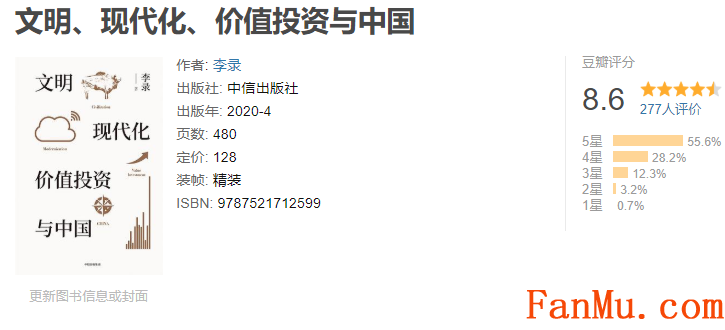
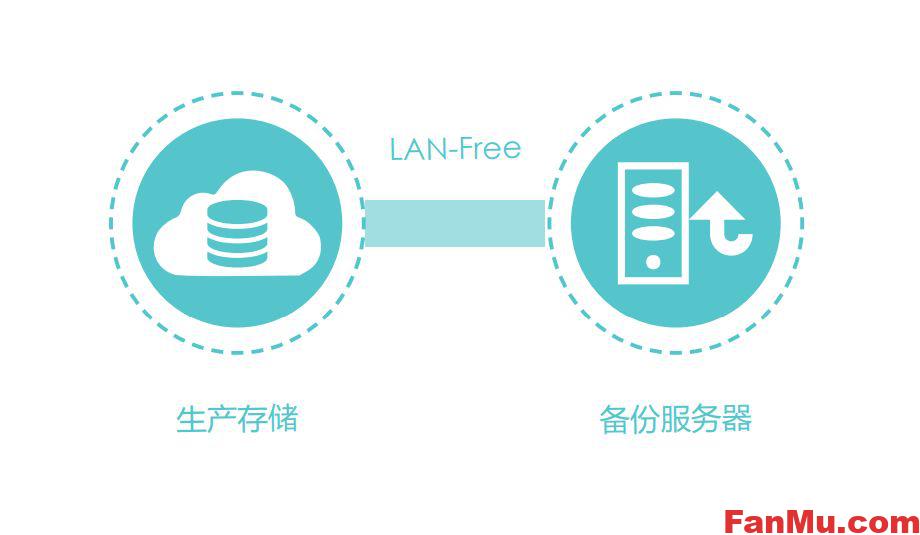
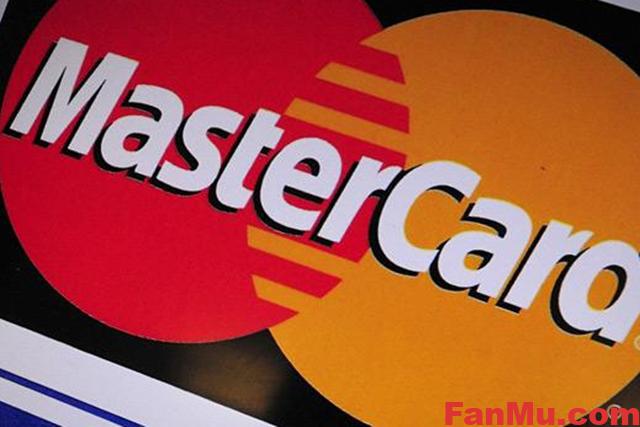
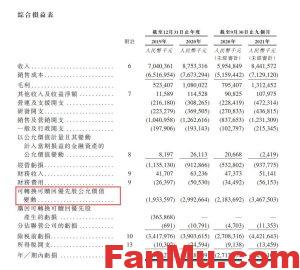
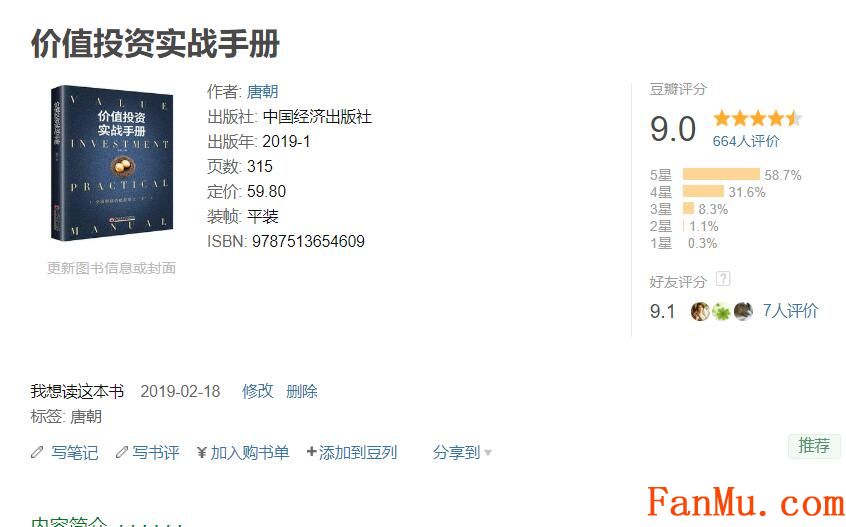

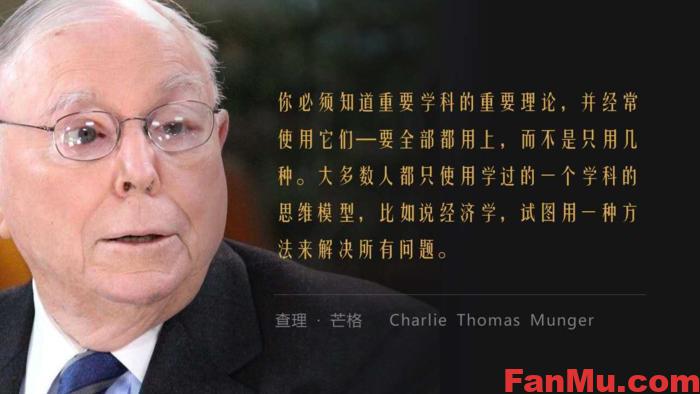

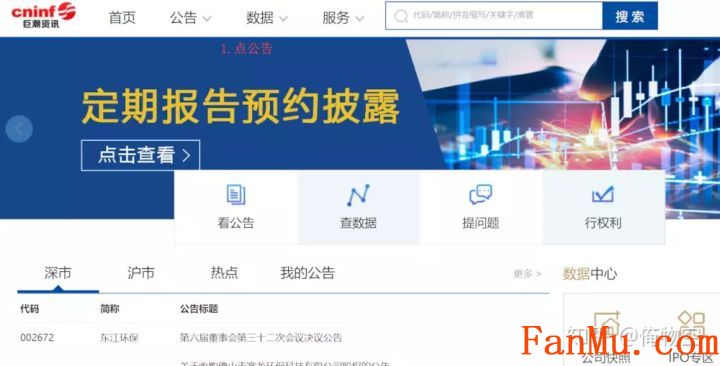

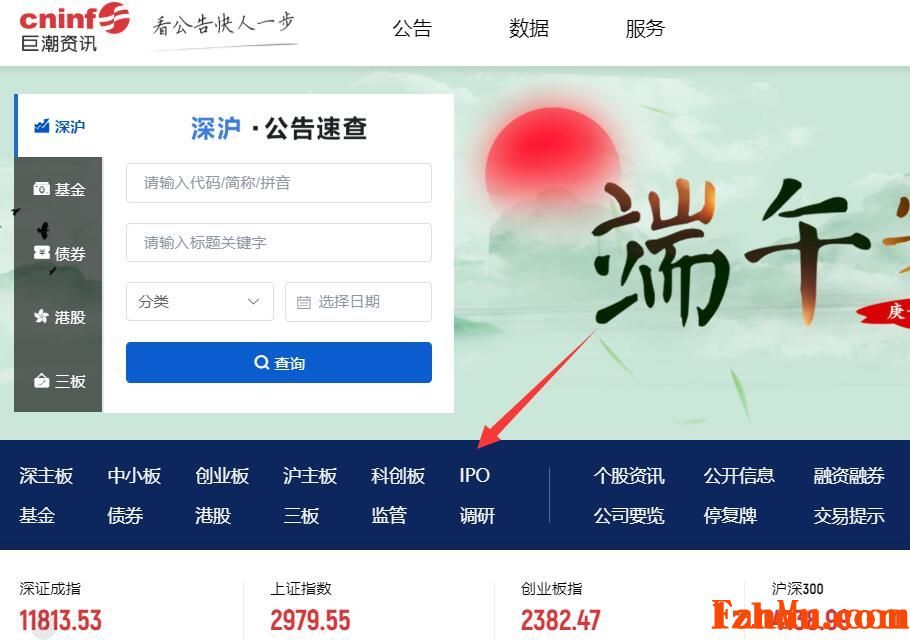

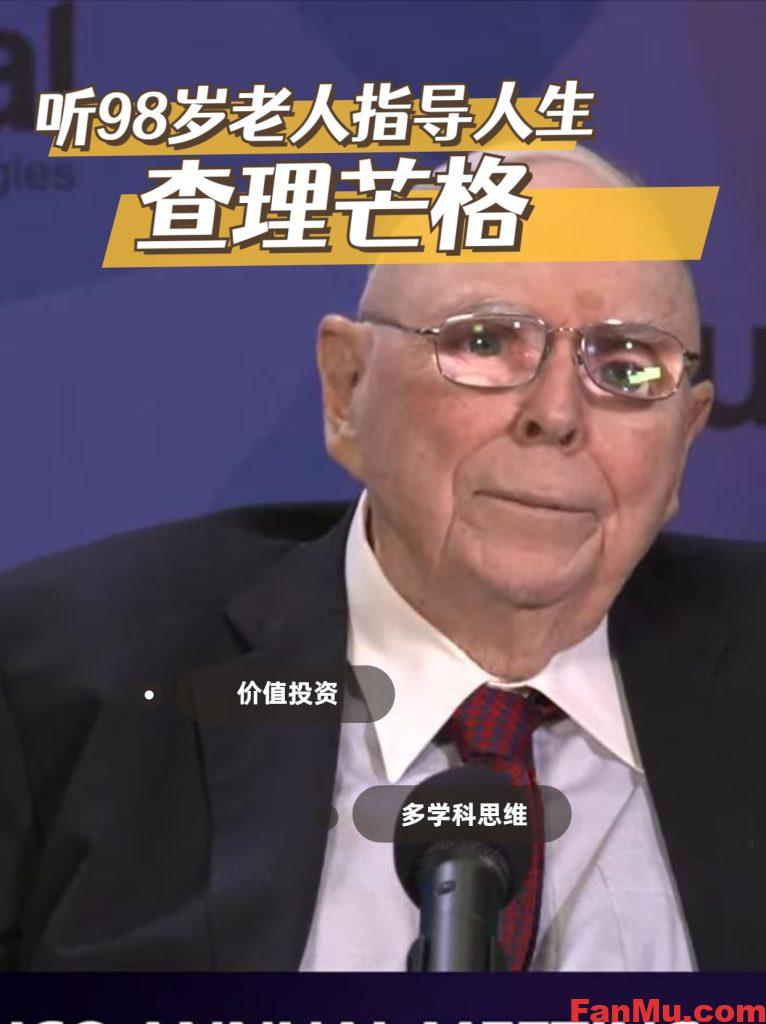
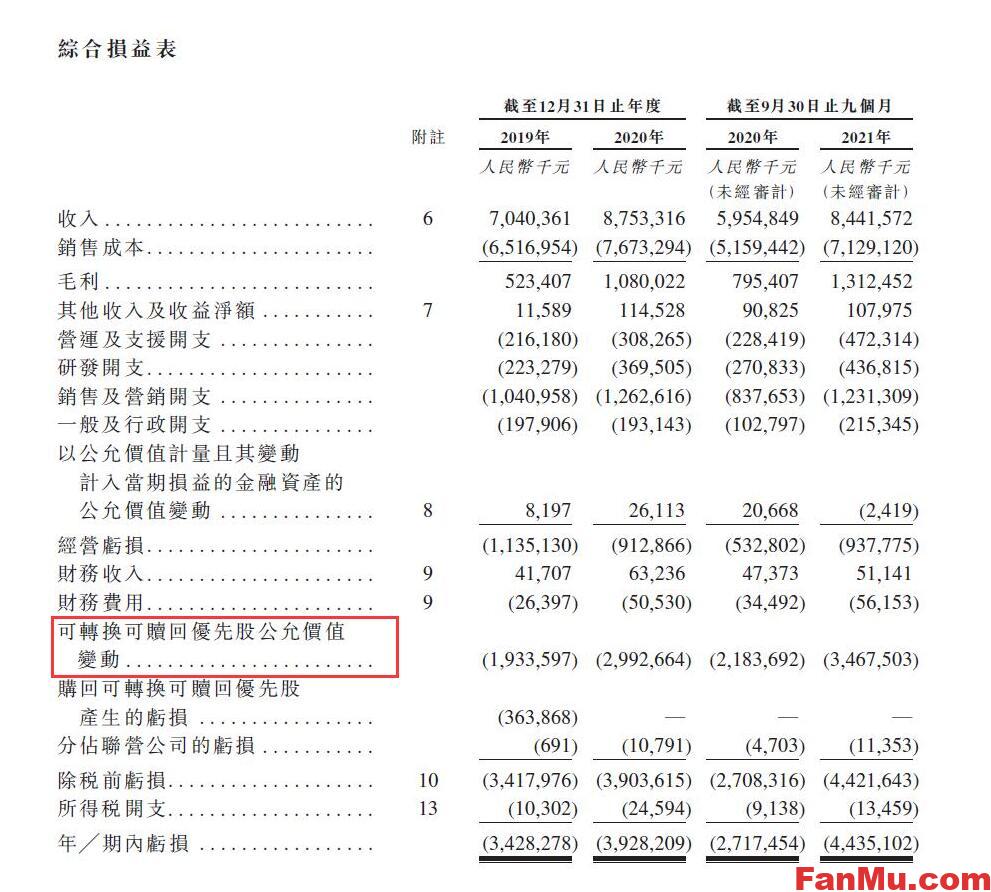


暂无评论内容